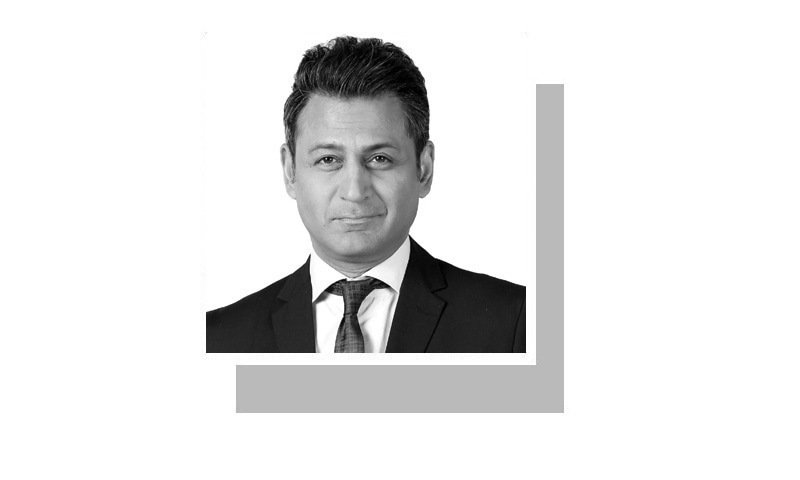'Groundbreaking in many ways': Reactions pour in on momentous verdict in Musharraf treason case
A three-member bench of a special court on Tuesday handed a death penalty to former dictator retired Gen Pervez Musharraf in a long-drawn treason case. Musharraf has been convicted for abrogating the Constitution and imposing an emergency in the country in 2007.
The verdict, the first of its kind in the country's history, drew varying reactions from politicians, journalists as well as members of civil society, with some expressing surprise and others hailing the judiciary.
'Groundbreaking in many ways'
Dawn's resident editor Islamabad Fahd Husain said that the decision was "groundbreaking in many ways".

"The decision of the special court [to hand] down a death sentence to former president retired Gen Pervez Musharraf is groundbreaking in many ways. First, it establishes a very strong legal deterrence against future interventions in which the constitution can be suspended. In this way it strengthens constitutional democracy in Pakistan.
"Second, it elevates the stature of the judiciary as a pillar of the State that is growing stronger by the day.
"Third, it helps bring greater institutional equilibrium within the various pillars of the State.
"Fourth, it reasserts the concept of civilian supremacy even if symbolically."
He too, predicted that the decision may be appealed in the Supreme Court and added: "The [apex] court has the option of suspending the death sentence till the final appeal is heard. It is clear that the sentence will not be implemented any time soon. The significance lies in the very fact that such a sentence has been handed down."
Verdict to have 'far-reaching implications'
Columnist Zahid Husain, while talking to Dawn.com, said it was "indeed a historic ruling that for the first time a military ruler has been tried for treason and convicted in Pakistan".

"The military has dominated politics here for over three decades and this verdict is bound to have far-reaching implications," he said.
'State of emergency': A timeline of the long-drawn high treason trial of General Pervez Musharraf
Husain added that "there won't be an actual sentencing because Musharraf is not in Pakistan but that doesn't take away from the fact that this is a landmark, historic verdict."
However, he said, the judgement "will also run into a few problems because the current government was not willing to pursue this case and it was pretty evident".
"Another factor that will raise some question marks is that Musharraf has only been convicted for the November 3, 2007 emergency but not for the original coup of October 12, 1999. So that leads to questions as to what of that coup and what about all those who validated it at the time."
He also commented on the tensions that the ruling might cause, pointing out that the treason case was "perhaps one of the most critical points of conflict between Nawaz Sharif and the military".
"And we have to keep in mind that this decision has come a day after the Supreme Court's detailed verdict in Gen Bajwa's extension case. So all of this may not go down well in the eyes of the military."
Husain predicted that the government might challenge the ruling in the top court.
'Surely unprecedented'
Columnist and anchorperson Zarrar Khuhro acknowledged that the verdict was "unprecedented" and that the country had "seen nothing like it" but was sceptical about the future impact.

"Today's verdict is surely unprecedented as far as Pakistan is concerned. We have seen nothing like it in this country," he said, while talking to Dawn.com.
"But will it curtail similar adventurism in the future? That is not something that can be said with any kind of certainty."
'Symbolic' ruling
Columnist Umair Javed, in a tweet, observed that no matter which way people viewed the verdict, it was a "symbolic" one.
Journalist and columnist Khurram Husain accused the government of trying to "rescue" the convict from the law.
Journalist Saleem Safi declared that "brave judges have made history".
"Despite PTI government's intense resistance and delaying tactics, a military dictator was sentenced to death," he tweeted.
Senior editor of The News Talat Aslam noted that a "precedent has been set" by the verdict.
Journalist Mubashir Zaidi said that the court's ruling has marked the "military misadventures" in the country.
"Long live Constitution," he declared.
Analyst Mosharraf Zaidi said that it was a "great moment for the symbol that is our Constitution".
'Oppose death penalty'
Former Dawn editor Abbas Nasir said he "can't endorse the death penalty" but, at the same time, acknowledged that the judgement "at least symbolically upholds the rule of law".
Rimmel Mohydin, a campaigner for Amnesty International, said that while Musharraf "deserve(d) punishment" and has "committed many, many crimes", awarding of a death penalty was "wrong".
Activist Ammar Ali Jan said that while he "oppose(d) death penalty even for criminals like Musharraf", the verdict was significant as it "challenge(d) the history of impunity for generals".
Ambreen Qureshi, a barrister, said that "sick Pervez Musharraf [got] zero humanitarian consideration" while former premier Nawaz was allowed to fly abroad on medical grounds.





